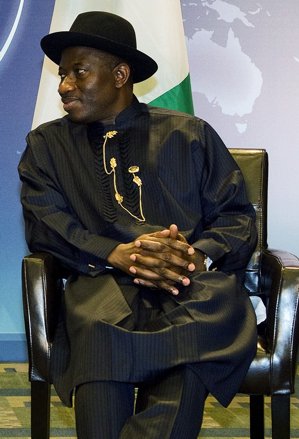|
Côte d'Ivoire | West Africa Politics Military intervention in Côte d'Ivoire could near
The UN has a 9,000-strong peacekeeping operation in Côte d'Ivoire, termed UNOCI, which plaid a great role in securing a democratic election last year won by opposition candidate Alassane Ouattara. It still plays a key role in protecting Mr Ouattara while the President-elect is barred from taking on power.
But President Atta Mills is being strongly criticised by the Ghanaian opposition and other ECOWAS leaders for his announcement. The Ghanaian President is accused of hollowing the ECOWAS stick against Mr Gbagbo. Despite this, Liberian President Ellen Johnson Sirleaf yesterday said her country also opposed a military intervention in Côte d'Ivoire. Ms Sirleaf claimed to speak on behalf of Liberia, Sierra Leone and Guinea, three ECOWAS countries grouped in the "Mano River Union" and representing the western neighbours of Côte d'Ivoire. Most other ECOWAS leaders have however indicated they favour maintaining the threat against Mr Gbagbo. Nigerian President Goodluck Jonathan, the current ECOWAS chairman, today made it clear that the regional body of course wanted to resolve the Ivorian crisis peacefully, but emphasised that "we have not changed the position we took during our last summit," regarding the possibility of a military intervention. President Jonathan in a statement explained that the Ivorian crisis was of principal importance on a continental level. "The votes of citizens must count after they are cast, or democracy will not take hold in the continent," the Nigerian leader said, explaining why a military option must remain open. Also Senegalese President Abdoulaye Wade has made it clear that the threat of a military intervention must remain open, as the entire democratic development of Africa was at stake. If military means where necessary to out Mr Gbagbo, then they must be used, the Senegalese presidency made clear last week. ECOWAS has now gathered its military chiefs to finalise plans for a possible intervention, according to the regional body. Until now, ECOWAS has indicated it has some 6,500 troops ready on standby, which could lead the operation in Côte d'Ivoire. The aim of the operation would be to enter the country, capture Mr Gbagbo, secure the capital and install Mr Ouattara in the presidential office. The intervention could start already in ten days, when the two-month deadline for a negotiated solution ends. There are however great doubts to whether such a small force could manage the task quickly and efficiently if Mr Gbagbo is able to mobilise the troops and civilians loyal to him. The ECOWAS intervention would come at a risk of igniting a new civil war in Côte d'Ivoire. By staff writer © afrol News - Create an e-mail alert for Côte d'Ivoire news - Create an e-mail alert for West Africa news - Create an e-mail alert for Politics news
On the Afrol News front page now
|
front page
| news
| countries
| archive
| currencies
| news alerts login
| about afrol News
| contact
| advertise
| español
©
afrol News.
Reproducing or buying afrol News' articles.
You can contact us at mail@afrol.com









